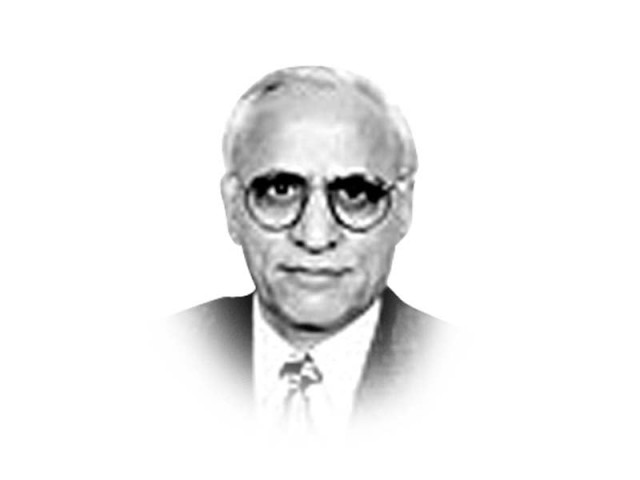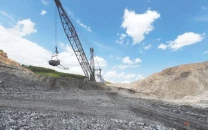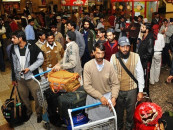Leaving it all for the next government
Any new government will be left with the monumental task of inflation control, avoiding default on its external debt.

The new government will have to tackle the problem of inflation and of balance of payment deficit on almost a war footing. For the first time in its economic history, double-digit inflation has become entrenched in Pakistan. A rise in world commodity prices (particularly of oil and food items), upwards adjustment of utility prices, major reliance on indirect taxes, floods and the earthquake, production bottlenecks due to loadshedding and the energy crisis have all played their part in intensifying inflationary pressures. But the overwhelming factor has been excessive money creation due to public sector borrowing from the banking system, which creates a situation of too much money chasing too few goods. In the ultimate analysis, inflation is a monetary phenomenon and can only be addressed through prudent fiscal and monetary policies. Unfortunately, the present government is likely to continue expansionary fiscal and accommodating monetary policies, which only fuel inflation.
The problem of the balance of payments deficit has its origin in an inadequate effort to expand exports and curtail imports and reliance, since long, on foreign borrowing to finance the wide current account deficit. The accumulated large external debt, without the creation of a corresponding capacity to service it, only adds to all of this. The track record of the current government suggests that it will refrain from taking any meaningful policy action. It will take no new tax initiatives to raise revenue resources and no structural reforms to stop the bleeding of public sector enterprises. It will take no steps to reduce its wasteful expenditure and may, in fact, increase it in the election period. Circular debt will continue to be financed by government-guaranteed borrowing from the banking system rather than through their structural reform or privatisation.
At the same time, with the termination of the standby arrangement with the IMF and a decline in the net external funding of the budget, the gap between public sector expenditure, including interagency debt, and its revenue will widen considerably. This gap will be increasingly filled by borrowing from commercial banks. In order to avoid squeezing out the private sector, the State Bank of Pakistan (SBP) will be forced to inject liquidity in the commercial banks. At the same time, pressure will be put on the SBP to keep its policy rate low so that the government’s debt-servicing liabilities are kept under check. The SBP that has been de facto brought under the firm control of the ministry of finance (MoF) would stand ready to oblige. This easy way of living beyond one’s means will breed a deeper inflationary spiral. Similarly, the government is unlikely to take structural reform measures to improve the balance of payment situation and will continue to incur more external debt. Consequently, the new government will be left with the monumental task of inflation control and avoiding a default on its external debt. To salvage the situation, it will have to do severe belt-tightening and large-scale revenue mobilisation to control the budget deficit and inflation.
Budgetary reforms will be a necessary but not sufficient condition to control inflation. Additional policy measures will be needed to expand private sector investment and accelerate the rate of economic growth. The growth rate can be improved on a sustained basis only with an increase in the domestic saving rate, by limiting the role of the government and providing a suitable environment for private sector investment. In addition to this, measures will be needed to promote exports, attract more home remittances and make the country attractive for foreign direct investment. And the size of the underground economy will have to be substantially curtailed.
This can only be done by a determined government committed to the country’s long-term stability will be able to muster the courage to take such unpopular decisions. Whether or not a government which has the strength and vision to undertake unpopular reform measures will emerge is anybody’s guess.
Published in The Express Tribune, November 2nd, 2011.















COMMENTS
Comments are moderated and generally will be posted if they are on-topic and not abusive.
For more information, please see our Comments FAQ